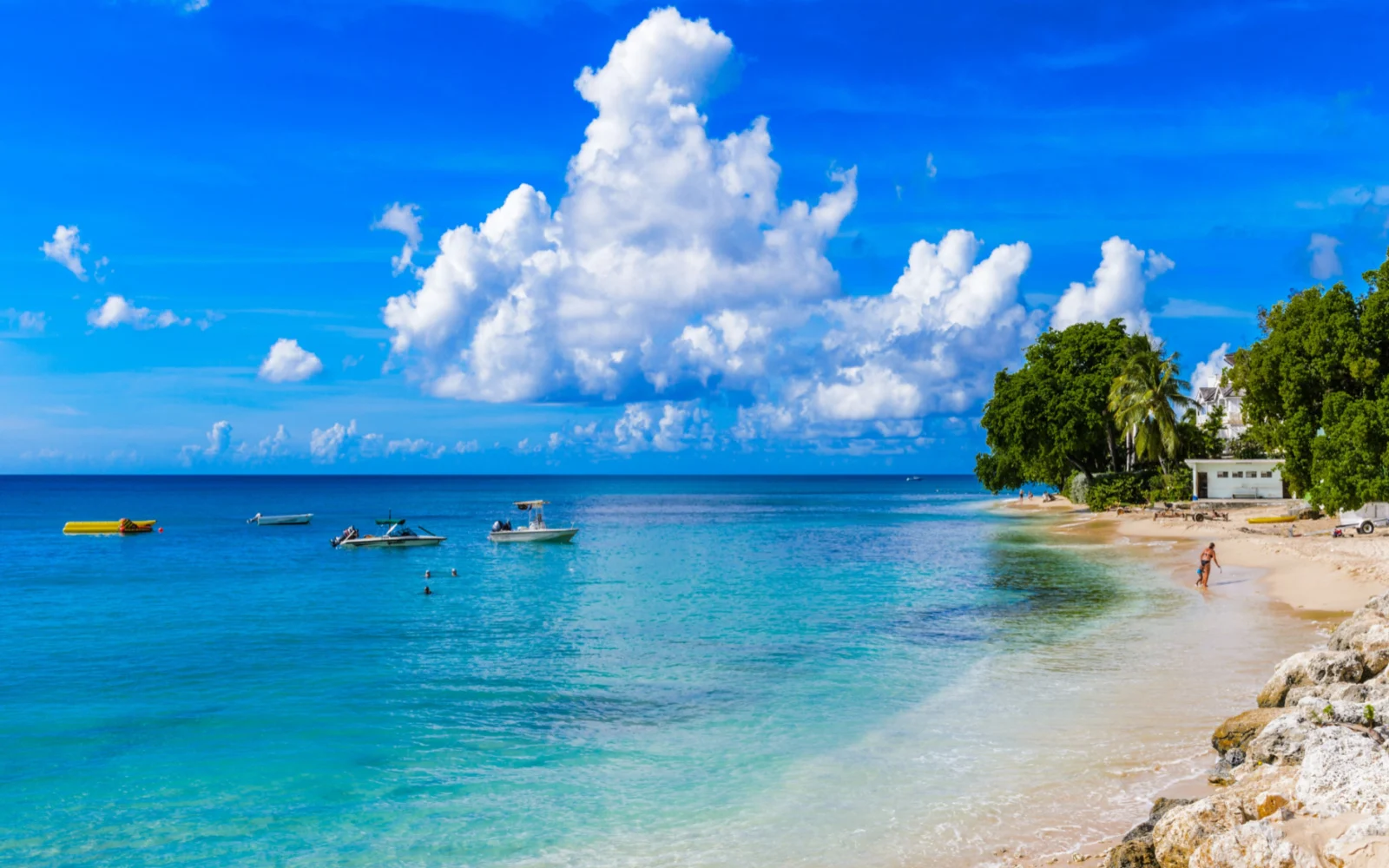Is Barbados safe to visit in 2025?
Barbados stands out as a safe Caribbean destination with low crime and a position that largely avoids severe hurricanes. Despite occasional minor crimes and rare violent incidents, it maintains a high safety rating, with minimal travel advisories issued. Its eastern location in the Lesser Antilles minimizes its exposure to the worst hurricane impacts, making it a secure choice even in hurricane season.
Barbados may be most famous as the birthplace of Rihanna, but it’s also a great place to visit on a tour of the Caribbean. Barbados has beautiful sandy beaches, like most Caribbean islands.
Whether you decide to work on your tan your whole vacation or choose more active pastimes such as snorkeling, swimming with sea turtles, or surfing, you won’t be disappointed. The island also has plenty of other attractions, from the lush Hunte’s Gardens to the rum distilleries at St. Nicholas Abbey.
The Caribbean is a beautiful region, but some Caribbean islands have a reputation for being unsafe, and you may be wondering if Barbados is among them. We’ll show you this and more below.
Is Barbados Safe to Visit?
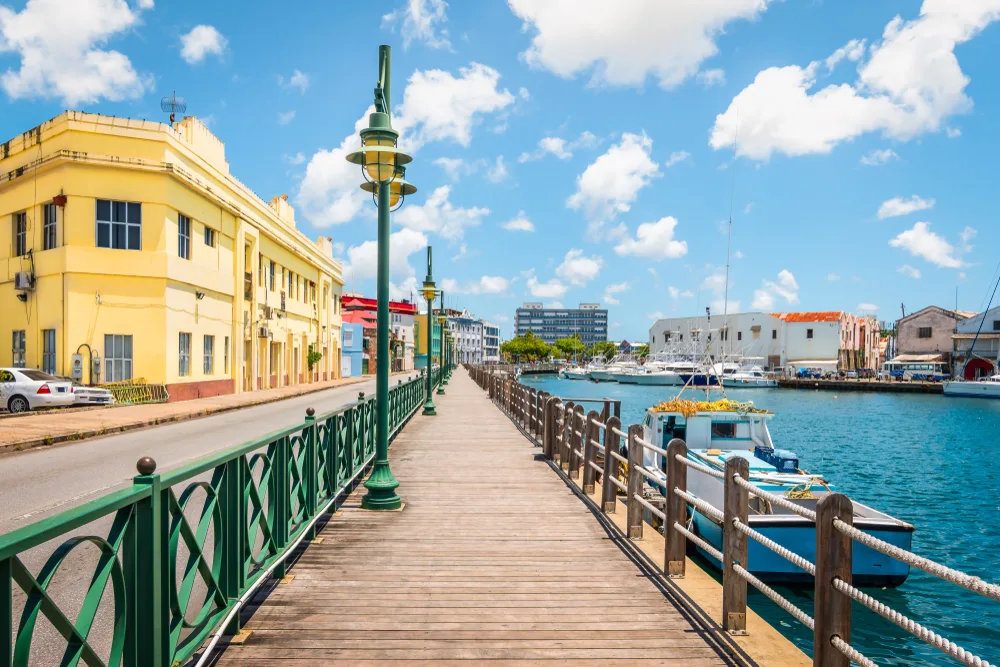
Napa/Shutterstock
Yes. Barbados is one of the safest islands in the Caribbean. The crime rate is low, unlike in many of its neighbors. Plus, the island is out of the path of the worst of the hurricane belt and misses the worst of the tropical storms.
A quick look at travel advisories for Barbados should be enough to help you figure out that the island is quite safe to visit. Many countries, such as New Zealand, don’t even bother issuing travel advisories for Barbados at all!
That means the country is safe enough that these governments don’t feel the need to issue specific travel advice to their citizens.
Those countries that do issue travel advisories for Barbados tend to be fairly unified in their opinion that it’s a safe country. The United States State Department places Barbados under a Level One travel warning, the lowest possible warning level.
Minor incidents and inconveniences still happen in Barbados, such as:
- Pickpocketing
- Bag snatching
- Scams
- Fraud
- Break-ins
- Gun crime
There have been some violent incidents in Barbados over the past few years, such as assault, leading some locals to worry that their beautiful island is becoming full of crime (more on that later). However, the levels of crime in Barbados are still not high enough to affect the safety of visitors.
Another regional problem that tends to affect most Caribbean islands is the hurricane season. Between June and November, Caribbean islands are pelted by rain which occasionally turns into strong tropical storms or hurricanes.
Barbados is affected by strong hurricanes every few years. Although it is technically within the hurricane belt, an area of the Caribbean where most hurricanes form, it is towards the edge. Barbados is to the east of the Lesser Antilles island chain, which means it is away from the center of most storms.
You should definitely monitor storm warnings if traveling during hurricane season and cancel plans if there is a storm predicted. However, Barbados is one of the safer islands to visit during hurricane season.
Read Next: When is the Caribbean’s hurricane season?
Crime in Barbados
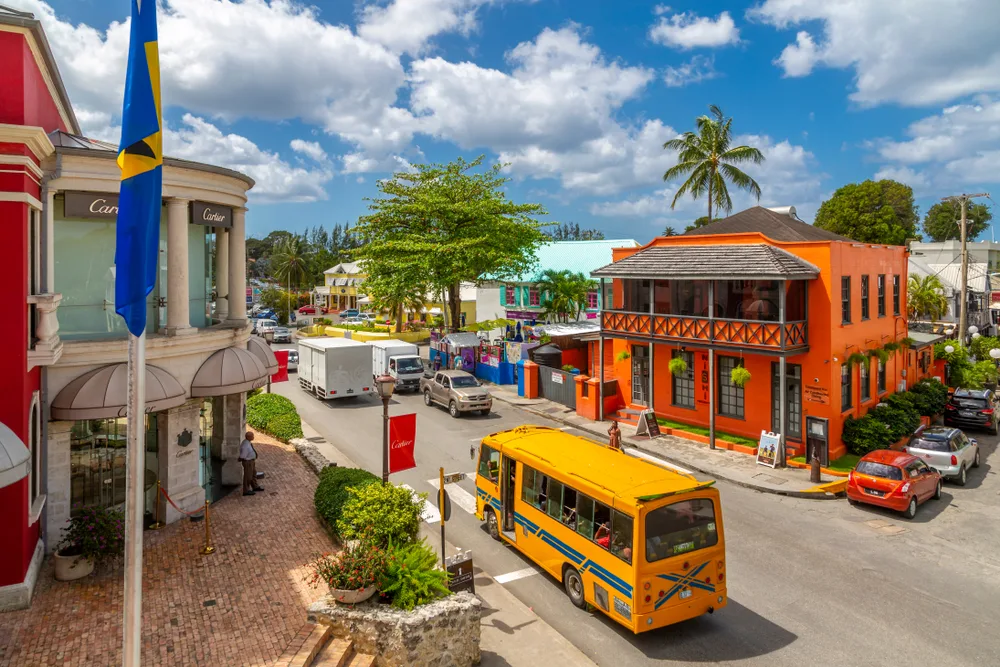
View of traditional ‘Reggae Reggae’ bus at Holetown, Barbados, West Indies, Caribbean, Central America 1-11-19/Frank Fell Media/Shutterstock
Barbados has a moderately high crime rate compared to world data, but compared to other Caribbean countries, its crime rate is actually not so bad. Most crimes affect locals, not tourists, but the fairly high violent crime rate is still cause for concern.
The Overseas Security Advisory Council, or OSAC, published a report on Barbados with the US government’s assessment of safety in the country. According to the report, occasional crimes include crimes of opportunity as well as violent crimes. Most crimes occur in Bridgetown, the capital.
Crimes targeting tourists are very rare. Locals and visitors alike are becoming concerned about the growth in violent crime. In 2021, the homicide rate was 11.38 incidents per 100,000 people, which is above the global average but below the regional average.
The UN considers murder an epidemic in the Caribbean and Latin America. The government is taking precautions to keep people safe and decrease crime.
The biggest driver of violent crime is access to guns, and the government is increasing weapons confiscation programs in response to concerns about safety. Plus, resort areas often have extra security, so tourists don’t have to worry as much about their safety.
Gun Violence
The most concerning crime-related trend in Barbados is the increase in gun violence. The high rate of gun use is behind the high rate of assaults, armed robberies, and of course, homicides.
According to the Organized Crime Index, the country has experienced a big rise in arms trafficking since 2022. Most weapons trafficking is connected to the rival gangs that control territory and the drug trade in Barbados.
Gang rivalries and warfare are also behind most of the violent crimes that occur in Barbados. The good news about this statistic for tourists is that since violent crime is usually connected to gang warfare, tourists are rarely affected.
Just make sure that you don’t do anything that might attract the attention of organized criminals, such as buying illegal drugs or wandering into dangerous neighborhoods.
Petty Theft
Although petty theft rates in Barbados are not as high as they are in many other holiday destinations, you should still take precautions to avoid going home without your valuables.
The Canadian government warns in its travel advisory for Barbados that there is some petty crime on the island, especially during the tourist high season when there are more crowds. Although crime is less common in resorts, thefts still occur.
Make sure that you protect your valuables in your room by making use of your hotel safe and locking your doors and windows when you are not in. While out and about, put valuables in a safe place.
You don’t need a money belt to explore Barbados, but it’s not a bad idea to opt for a zipped bag instead of an open tote or not to put your wallet in your back pants pocket.
Avoiding Bad Areas
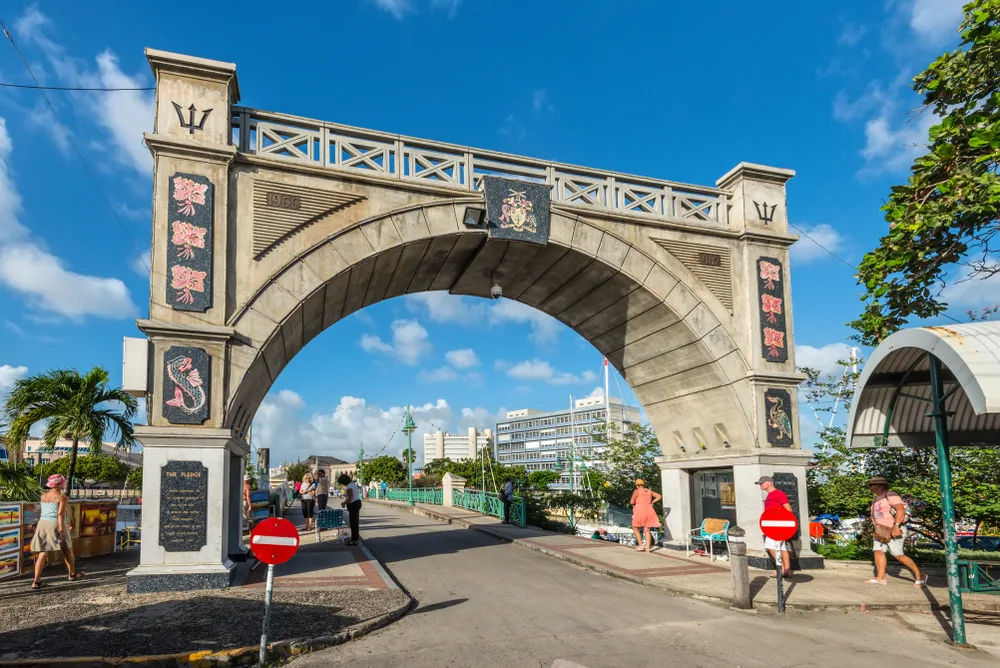
Bridgetown, Barbados – December 18, 2016: The Independence Arch and the Chamberlain Bridge/Byvalet/Shutterstock
Most areas worth avoiding in Barbados are located in the capital Bridgetown, which has a higher crime rate than most of the rest of the country. Neighborhoods with higher crime rates include:
- Crab Hill
- Nelson Street
- Wellington Street
Outside of Bridgetown, St. Lawrence Gap also has a fairly high crime rate. This popular beach town has a very high rate of gender-based violence such as sexual harassment and assault, so worth avoiding if you are a female traveler.
Frequently Asked Questions
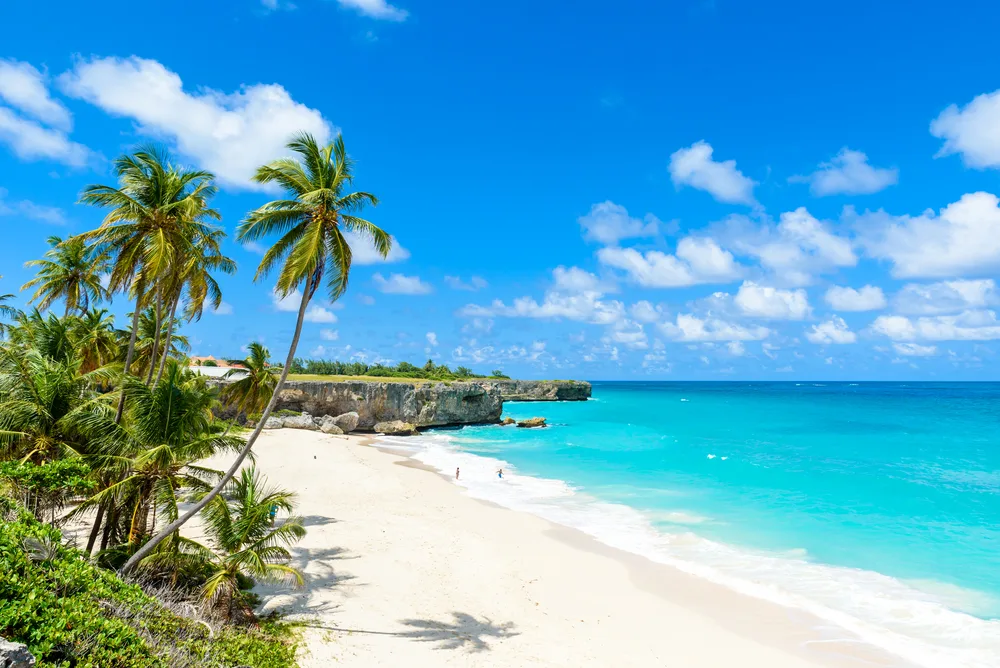
Simon Dannhauer/Shutterstock
Still want more information before planning a trip to Barbados? These common questions can help:
How safe is Barbados for tourists?
Barbados is fairly safe for tourists. Although the island has a moderately high crime rate, incidents almost never affect visitors, especially not violent incidents. The government has taken precautions to protect tourists.
Is Barbados safer than Jamaica?
Barbados is much safer than Jamaica. It has a lower violent crime rate, and crimes rarely affect tourists. Barbados is also at less of a risk of hurricane damage than Jamaica, making it safer even when it comes to natural disasters.
Is Barbados safe for solo female travelers?
Solo female travelers can visit Barbados safely but should take more precautions than male travelers or those visiting in a group. Sexual harassment and assault do happen, particularly in some places such as The Gap. Nightlife is also a hot spot where solo female travelers may be unsafe.
Is Barbados a good island to vacation?
Barbados is the perfect island for a vacation! Not only is it relatively safe, but it has beautiful beaches, great rum, and opportunities for all kinds of activities, from spelunking to surfing.
What is the safest Caribbean island?
The ABC islands (Aruba, Bonaire, and Curacao) are usually named the safest Caribbean islands, along with St. Barth’s and other upscale destinations. Barbados is one of the safest as its crime rate is low by regional standards.
So, Is Barbados Safe to Visit?
Barbados is one of the safest destinations in the Caribbean thanks to its lower crime rate compared to its neighbors as well as its lower risk of hurricane damage. Of course, the island still has problems, notably a recent increase in gang violence and violent crime.
These problems are relatively easy to avoid for visitors by avoiding dangerous neighborhoods or unfamiliar areas after dark. With some precautions, your trip to Barbados should be a safe getaway!



